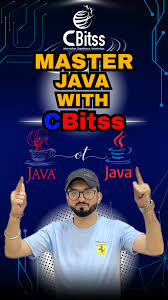Introduction
To take a course in JAVA is a good idea when someone wishes to make their career in the field of programming, software development and applications development. This is among the most favorite programming languages globally that have been known to be versatile, dependable and are commonly applied in enterprise applications, Android apps and web development.
JAVA however can be overwhelming on the part of the beginner too. Such concepts as object-oriented programming, classes, interfaces, and exception handling might seem rather daunting at the beginning. What then can one do in order to learn JAVA course quicker without shortchanging?
This article will present real expert tips to move faster in your learning process, to prevent possible pitfalls and develop actual confidence in coding.
Why Learning JAVA Can Feel Slow at First
Most novices get excited when they come to learn JAVA only to find themselves stagnated after several weeks. So what are some typical problems?
All theory, no practice: A large number of learners spend all their time reading yet never ending up writing code.
Lack of direction: A structured plan is absent without which one can end up hopping all over.
Being blocked by mistakes: Learning how to solve such a small mistake as syntax can be demoralizing to learners.
Fear of difficult subjects: When subjects such as inheritance or multithreading are present they will be avoided and represent blank spots on a knowledge map.
The Good News?
These challenges are easy to deal with or even prevent using the proper strategies.
Start with the Core Concepts—Don’t Skip the Basics
One mistake beginners often make is trying to jump ahead too quickly.
Yes, it’s tempting to dive into app development or frameworks like Spring. But if your foundation in basic JAVA is weak, you’ll struggle later.
Focus First On:
- Data types and variables
- Loops and conditionals
- Functions (methods)
- Arrays and strings
- Classes and objects
Real-Life Tip: Think of JAVA like a house—you need a strong foundation (basic syntax and logic) before you build rooms (advanced topics) or decorate (projects and frameworks).
Code Every Day — Even for 30 Minutes
Reading about JAVA will not make you a programmer. Writing code will.
Even if you’re short on time, daily coding practice helps reinforce what you learn and improves muscle memory. Start with small programs: calculators, number guessers, or simple pattern designs.
Why It Works:
Daily coding builds consistency. It turns new concepts into habits and helps you recognize errors faster.
Antithesis:
Many people binge-learn for hours once a week, but then forget things in between. Smaller, consistent efforts tend to yield better results.
Break Big Problems into Smaller Parts
JAVA programming can feel overwhelming when you try to solve complex problems in one go. Whether it’s building an app or writing a program with multiple classes, you should learn to break problems into manageable steps.
Example:
Instead of jumping straight into a full-fledged billing system, start by:
- Creating a class for products
- Writing methods to calculate prices
- Adding user input
This modular approach reduces confusion and improves problem-solving skills.
Use Real-Life Examples for Practice
Abstract concepts are challenging since they cannot be comprehended without using them in life.
Otherwise than writing code that does not resonate with you, solve problems that are life-oriented.
Examples:
- Make a spreadsheet that would monitor your monthly expenditure
- Create a game of quiz
- Fake an ATM machine
These activities are interactive and offer more context to the student applying the lesson.
Don’t Fear the Tough Topics — Tackle Them Step by Step
The advanced JAVA concepts such as inheritance, interfaces, exception handling, file I/O and multithreading may be tricky.
Do not skip them but divide them into parts and then preferably, one-by-one.
Expert Strategy:
- Peruse the idea
- Know the reason for having it.
- See examples
- Write an elementary program with its use
This is like a layering technique by which you do not only memorize but also comprehend what you are doing.
Ask for Feedback and Learn from Mistakes
You will commit errors and that is okay. The significant part is to learn them.
Share your code in a peer group, to mentors or forums and request feedback. The simplest or more effective of doing the same logic will many times be likely found.
These insights can aid you to write more and more intelligently code over time.
Practice with Projects — Not Just Tutorials
Guided learning can be done through tutorials. However, to get a clear demonstration of your knowledge, you start your own mini-projects.
Things to Try:
- Library management system
- Creator, report cards, student
- File storage in personal diary app
These projects not only use what you know about JAVA, it also girds you against code situations and job interviews.
Final Thoughts
Learning JAVA does not mean learning the syntax. It is more about logic construction, exercise and getting used to solving problems.
The use of these tips, however, will help you learn JAVA faster without ever having to feel overwhelmed by the rush as some of them are as follows: start small, code everyday, break problems down, and learn new things from failures, just to name a few.
This is achieved by use of consistency. It is a gradual gain just like learning a new language or listening to the musical instrument. Have patience with you, be inquisitive and you will be surprised soon enough how JAVA will not become something you can handle easily, but you will actually enjoy it.
- Master JAVA Faster with Expert Tips | Learn Java Smartly & Efficiently
- Want to master JAVA faster? Discover practical, expert-approved tips that boost your learning speed. Ideal for beginners and advanced learners a like.
- #JAVA training tips
Related posts:
 Machinery and Equipment Industry Email List: Unlocking Opportunities for B2B Marketing Success
Machinery and Equipment Industry Email List: Unlocking Opportunities for B2B Marketing Success
 Amazon Virtual Assistant: The Perfect Help System for Online Retailers
Amazon Virtual Assistant: The Perfect Help System for Online Retailers
 How to Choose the Right Google Shopping Agency for Your Brand
How to Choose the Right Google Shopping Agency for Your Brand
 California Marketing Agency Services That Drive Real Results
California Marketing Agency Services That Drive Real Results
 CodeIgniter Development Company: Empowering Scalable Web Solutions for Modern Businesses
CodeIgniter Development Company: Empowering Scalable Web Solutions for Modern Businesses
 How Do Toll Free Number Service Streamline Call Center Operations
How Do Toll Free Number Service Streamline Call Center Operations
 Can Tourism Companies Use SMS Smart Links for Package Details?
Can Tourism Companies Use SMS Smart Links for Package Details?
 How UAE Startups Are Embracing Automation Through Apps Your Solution here
How UAE Startups Are Embracing Automation Through Apps Your Solution here







